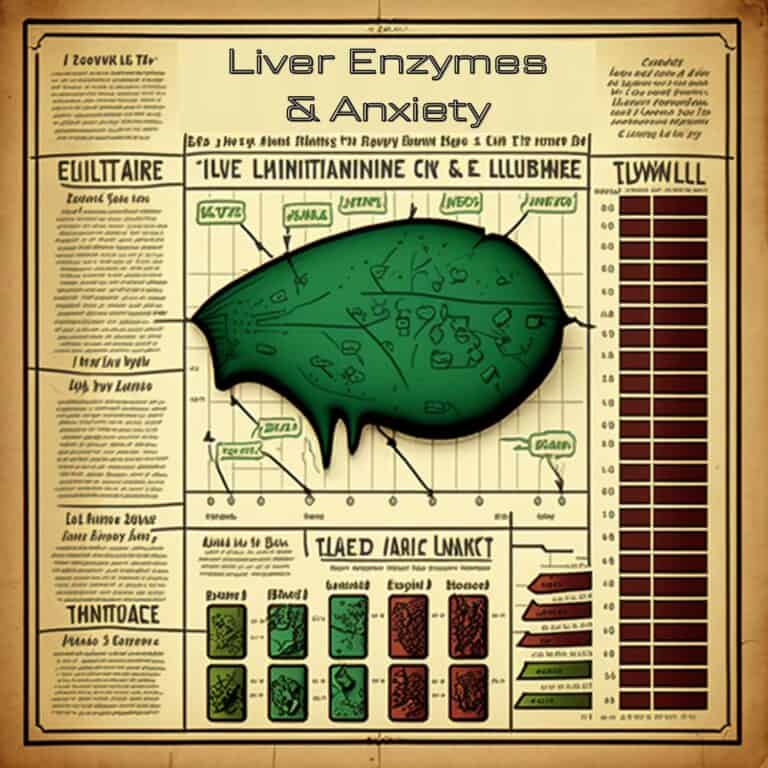Does therapy help anxiety?
Millions of people in the United States and all over the world suffer from anxiety, which is a common mental health problem. Even though there are many different kinds of treatments, therapy is one of the best.
In this article, we’ll talk about the different types of therapy for anxiety and how they can help people deal with their symptoms and live better.

How to Treat Anxiety the Best Ways
One of the most common mental health problems in the U.S. is anxiety. It can be shown by having too much anxiety or feeling too much anxiety, as well as by specific symptoms like changes in heart rate and other physical signs of anxiety. There are effective ways to deal with anxiety, such as counselling, medications, and support groups. In this article, we’ll talk about the different kinds of anxiety disorders, the best ways to treat them, and why it’s important to get help from a professional.
Different kinds of anxiety problems
There are different kinds of anxiety disorders, and each has its own set of signs and ways to treat them. The following are some common types of anxiety disorders:
- Generalized Anxiety Disorder (GAD) is a condition that is marked by a lot of anxiety or worry about normal things in life.
- Panic Disorder is marked by panic attacks that come on quickly and out of the blue.
- Social phobia is when someone is afraid of and avoids social situations.
- Specific phobias cause people to be afraid of and avoid certain things or situations.
- Obsessive-Compulsive Disorder (OCD) is characterised by unwanted, intrusive thoughts and repetitive behaviours, or compulsions.
- Post-Traumatic Stress Disorder (PTSD) is a condition that causes people to feel anxious and avoid situations that remind them of a traumatic event.
- Borderline Personality Disorder (BPD) is marked by relationships, feelings, and self-image that are intense and changeable.
Options for Treating Anxiety Disorders That Work
The good news is that there are many ways to treat anxiety disorders. Most of the time, psychological therapy, like cognitive-behavioral therapy, is the first treatment for anxiety (CBT).
CBT is a type of talk therapy that helps people recognise and change negative or anxious thoughts, feelings, and behaviours.
Systematic desensitisation, progressive muscle relaxation, and cognitive restructuring are some other psychological therapies. We will discuss some of these in more depth below
In fact, there is evidence from clinical studies that show therapy delivers results when i comes to treating anxiety.
Different therapies are delivered in slightly different ways, and it has been my experience that not all therapies suit all people. For example, if you are an analytical thinker then cognitive-behavioral therapy may well work for you.
If you are a doer, you may just prefer to get straight into Exposure Response Prevention and face right up to what is making you anxious with very no theory involved.
If your anxiety comes from your relationships, the Family Therapy or Interpersonal Therapy might be right for you.
If your anxiety is rooted in difficult relationships in childhood with features or rejection or even abuse, then you might find psychodynamic theory is the only one that will help you.
Sessions can be done one-on-one or in a group with a clinical psychologist or another mental health professional. Group therapy can be very helpful for some people because it gives them a safe place to talk about their problems and learn from others.
The American Psychological Association says that therapy is the best way to treat anxiety disorders because it works and doesn’t have any bad side effects. They are pitting it against medication, but of course the American Psychological Association trains people in psychological therapies and supports treatment through psychology.
You will find the American Psychiatric Association speaks favorably about medication, because psychiatrists prescribe medicines while psychologists give therapies.
Different kinds of medicines can also be used to treat anxiety disorders. Selective serotonin reuptake inhibitors (SSRIs) and other anti-anxiety drugs can help in the short term. But they are not a long-term solution, and some people may have side effects they don’t want.
It is very often my experience that a patient does not want therapy. They want what they imagine will be the quicker fix of taking a pill. This may or may not be all the need, it’s certainly worth a shot.
Talking to a doctor or someone who works in mental health can help you figure out what kind of medicine will work best for you.
In addition, people who have anxiety disorders can also get help from support groups. People with anxiety disorders and other mental health problems can get help from the Depression Association of America and the National Institute of Mental Health.
Advantages of Getting Help from a Professional
Help from a professional can make a big difference in how you deal with anxiety. Studies and clinical trials have shown over and over again that when people get psychological therapy or a combination of therapy and medication, their symptoms get much better. The best way to get good treatment and support is to talk to a good therapist or mental health provider.
Therapy can also help people deal with both the physical symptoms of anxiety and the reasons behind them. A good therapist can give you a safe place to talk about your anxious thoughts and feelings, learn ways to deal with them, and improve your quality of life as a whole.

Online counselling
In the past few years, people with anxiety disorders have been using online therapy more and more. People can get mental health services from the comfort of their own homes with online therapy. This makes it easier to fit therapy sessions into a busy schedule. Many mental health providers and therapists now offer online therapy, which can be just as effective as in-person therapy.
E-therapy, teletherapy, and other forms of online psychiatric help have exploded in popularity in recent years, notably in the wake of the COVID-19 epidemic. Yet, internet therapy’s efficacy and utility have been questioned.
One prominent argument against the efficacy of internet treatment is that it can’t replace face-to-face sessions because of the absence of personal connection and human touch. Some patients may find it more challenging to open up to their therapist about their deepest thoughts and emotions because of the absence of eye contact.
Yet, there are many who believe that persons with more serious mental health disorders or those who are at danger of self-harm or suicide should not use internet counselling. When a patient is in urgent danger, it may be best to provide them with in-person counselling.
Concerns about confidentiality and safety are also often raised as arguments against the use of internet counselling. Customers may worry that their private data may be compromised if their communications are intercepted or hacked. Yet, the best online counselling programmes will encrypt sensitive client information.
Also, some individuals may be dubious of or unwilling to pursue internet therapy because they believe it to be less credible than conventional in-person counselling. Yet, it’s worth noting that research suggests that online treatment is equally helpful as in-person therapy in many situations, and may even be more convenient for some individuals to pursue.
What’s the best kind of Psychotherapy for anxiety?
Anxiety comes in many different forms, such as generalised anxiety disorder, social anxiety disorder, panic disorder, and more. Some common signs of anxiety are worrying too much, having racing thoughts, having trouble sleeping, being irritable, and avoiding certain situations. There are a number of types of therapy that can help people deal with these symptoms and work towards a happier life.
Cognitive-Behavioral Therapy (CBT)
Cognitive-behavioral therapy (CBT) is thought to be the best type of psychotherapy for treating anxiety disorders. CBT teaches specific skills to help improve symptoms and slowly get back to doing things that were avoided because of anxiety. It is based on the idea that our thoughts, feelings, and actions are all linked and can be changed to reduce anxiety. CBT has been studied a lot and has been shown to help reduce anxiety symptoms and keep people from getting worse.
One common criticism of CBT is that it tends to focus on specific symptoms or problems, rather than addressing underlying issues or systemic factors that may contribute to a person’s difficulties. This narrow focus can sometimes lead to a lack of exploration of the deeper, root causes of mental health concerns. Additionally, some people may find CBT to be overly structured or formulaic, which can make it feel less personalized or responsive to their unique needs and experiences.

Exposure Therapy
The cognitive-behavioral therapy known as exposure and response prevention (ERP) is the gold standard for treating obsessive-compulsive disorder (OCD) (OCD).
Exposing patients to their feared stimuli gradually and educating them to refrain from engaging in compulsive behaviours or mental routines to lessen anxiety are key components of this treatment modality. The treatment relies on habituation, the idea that prolonged exposure to something might cause a person to become less afraid of it.
Exposure response prevention (ERP) usually entails a progression from less to more difficult stimuli. With the therapist’s assistance, the patient will create a “fear hierarchy,” in which the most frightening scenarios appear at the bottom of the list. The goal of the treatment is to help the patient understand that anxiety is a natural reaction to certain stimuli and that it can be tolerated and managed without the need of avoidance or other maladaptive coping mechanisms.
ERP therapy has been shown to be effective in the treatment of OCD; yet, the method is not without its detractors. Patients may find the treatment challenging and upsetting since it includes putting them in situations that trigger anxiety. Some patients may discontinue treatment due to high levels of anxiety, anguish, or discomfort they experienced while receiving therapy.
Another issue with ERP is that tailoring treatments to each patient’s specific requirements might be difficult. While individuals with OCD tend to exhibit very nuanced and unique behavioural and cognitive patterns, standard treatments may not be optimal for all of them. As ERP treatment is very regimented, it may be challenging for therapists to adapt to the unique needs of each patient.
Research continues to support the efficacy of ERP therapy as a treatment option for OCD, despite these objections.
Psychodynamic Therapy
Psychodynamic theory is a school of thought in psychology that places a premium on the influence of one’s previous and unconscious processes on their present actions. The concepts of Sigmund Freud, who is often regarded as the “father of psychodynamic theory,” had a profound impact on the discipline of psychology. Freud felt that repressed ideas and memories were at the root of mental diseases, and his theory centred on the importance of the unconscious mind. With free association, dream analysis, and transference, as well as other techniques, he created psychoanalytic therapy to help people deal with painful emotions and experiences that they had pushed to the back of their minds.
Another major contributor to psychodynamic theory was Carl Jung. Initially inspired by Freud, he went on to create his own theory that similarly focused on the unconscious collective and archetypes. Psychological issues, according to Jung, stem from an individual’s inability to reconcile their individual unconscious with the collective unconscious.
Another major contributor to psychodynamic theory was Alfred Adler. His theory was that an individual’s actions are determined by both their own aspirations and their social environment. Adler theorised that a lack of social interest and a lack of care for the wellbeing of others were at the root of mental illness.
Psychodynamic theory has been criticised for a lack of scientific rigour and a lack of empirical backing. Others have argued that there is no proof for the claims made, and that the focus on hidden or forgotten information is unrealistic.
Opponents also claim that more contemporary conduct might benefit from a more behavioural and cognitive approach, rather than one that focuses on the past and the unconscious. However, many patients may find that the expense and lengthy duration of psychodynamic therapy makes it unfeasible to pursue treatment.
Lastly, it has been argued that the absence of a systematic methodology and the therapist’s interpretation and subjectivity might lead to inaccurate diagnoses and inappropriate therapy.

Interpersonal Therapy
As a kind of psychotherapy, interpersonal therapy (IPT) is concerned with helping patients develop more effective methods of communicating and interacting with others. Its goal is to help those who have trouble making and keeping friends or who suffer from social anxiety.
Patients may benefit from increased self-awareness and healthier connection patterns via the collaborative and supportive approach of IPT.
Nevertheless, this method has been criticised for a number of reasons, including a myopic emphasis on interpersonal issues and a failure to consider how a person’s qualities and unconscious processes may be contributing factors.
Moreover, there are others who believe that IPT puts an unrealistically high premium on the quality of the therapist-patient connection. Others have argued that it is impossible to gauge the approach’s efficacy since it lacks a solid theoretical basis and a well-defined process.
Acceptance and Commitment Therapy
By emphasising acceptance and mindfulness, Acceptance and Commitment Therapy (ACT) is a kind of psychotherapy that tries to improve patients’ ability to cope with distressing thoughts and feelings. This kind of treatment is useful for getting people to better integrate their beliefs and choices. Anxiety, sadness, and drug misuse are just some of the mental health issues that have responded well to ACT treatment.
ACT has been criticised for its concentration on symptom treatment rather than in-depth investigation of psychological concerns and its failure to consider how previous experiences may be contributing to present difficulties. Some people say ACT is too simple and doesn’t get to the root of mental health issues. However, those who have suffered abuse or trauma may struggle with the focus on embracing and accommodating unpleasant ideas and emotions. There are many who worry that ACT won’t help these people and may perhaps make their conditions worse.
Desensitization and reprocessing of eye movements (EMDR)
Those who have endured traumatic situations, especially those who have been diagnosed with Post-Traumatic Stress Disorder (PTSD), might benefit from a kind of psychotherapy known as Eye Movement Desensitization and Reprocessing (EMDR) (PTSD). The idea behind EMDR, which has been used successfully since its inception in the late ’80s, is that people who have experienced trauma have trouble processing and storing memories of the incident. It might cause the victim to feel helpless and keep the trauma’s bad effects going strong throughout their life.
Through the eight-step process of EMDR, the traumatised individual is given the opportunity to go through their thoughts and emotions about the traumatic incident. It is claimed that the eye movements used in EMDR assist the individual process the traumatic incident and integrate it into their memory in a healthier manner. In most cases, the therapist will have the patient follow a light or their hand while they make a series of back-and-forth motions with their eyes.
Whilst many have found success using EMDR, its efficacy is still being discussed among experts. Several sceptics of EMDR point to the therapy’s use of exposure and desensitisation as the true cause of its positive outcomes, rather than the method’s reliance on eye movements. Although many have found success using EMDR, others say that additional robust studies are needed to properly confirm its efficacy. Several persons with PTSD and other trauma-related illnesses have experienced considerable reductions in symptoms and enhancements in quality of life after undergoing EMDR therapy, despite these critiques.
It is important to note that as EMDR treatment advances, some people may suffer transient increases in discomfort as they encounter and process traumatic memories and emotions.

Mindfulness-Based Stress Reduction (MBSR)
Treatment for stress, anxiety, and other mental health issues is possible via a method called Mindfulness-Based Stress Reduction (MBSR).
Meditation, yoga, and other forms of body awareness training are used in this treatment to assist patients become more in tune with their internal emotional states. Anxiety, tension, and depression may all be alleviated with MBSR, and the practise has been demonstrated to enhance quality of life in general[1]. Results from this method have been shown to continue for at least two years after treatment.
Some sceptics of mindfulness-based stress reduction (MBSR) point to the therapy’s little scientific proof and want for further studies to be conducted to evaluate its efficacy. It has been noted, however, that the treatment does need a considerable time and energy investment, which may be challenging for some patients to maintain.
However, some patients may have trouble participating in the practises or may have negative effects like increased anxiety or emotional discomfort when they are used in therapeutic settings.
Although preliminary evidence suggests that MBSR may be helpful in treating anxiety, further study is required to draw firm conclusions.
How to Find a Counselor for Anxiety Support
The first step in treating anxiety is to find the right therapist. It’s important to find a therapist who is a good fit for treating anxiety and who has worked with people who have similar symptoms and needs.
When looking for a therapist, it’s important to think about their credentials, experience, and how they do therapy.
Some therapists focus on one type of therapy, like cognitive behavioural therapy (CBT) or exposure therapy, while others use a mix of different methods. Also, it’s important to think about things like location, cost, and availability.
Many therapists offer free consultations to help people figure out if they are a good fit.
What to Expect in Anxiety Therapy
It can be scary to think about going to therapy for anxiety, but it can also be very helpful. The therapist will work with the person to make a treatment plan that is unique to their needs and goals.
This plan could include a mix of different types of therapy, changes to the way you live, and ways to relax.
The therapist will also help the person figure out how their negative thoughts and actions contribute to their anxiety and help them change them.
Over time, therapy can help the person learn new ways to deal with problems and become more emotionally strong
Frequently Asked Questions:
People often ask the following questions about anxiety and therapy:
Can a therapist help with anxiety?
Yes, a therapist can help with anxiety. Anxiety can be a debilitating condition that negatively impacts one’s life, relationships, and mental health. A therapist can provide a supportive and non-judgmental environment that allows the person to explore the underlying causes of their anxiety and develop strategies to manage and reduce their symptoms. Therapy can help individuals identify and change negative patterns of thinking, develop coping mechanisms, and practice relaxation techniques.
Additionally, a therapist can provide evidence-based therapies, such as Cognitive Behavioral Therapy (CBT), Exposure Therapy, and Mindfulness-Based Stress Reduction (MBSR), which have been shown to be effective in reducing anxiety symptoms.
However, therapy is not a quick fix, and it may take time and effort for a person to see improvement in their anxiety symptoms. Additionally, therapy is not always accessible or affordable for everyone, and some individuals may not find the right therapist or therapy approach for them.
How long does it take to cure anxiety with therapy?
The length of time it takes to cure anxiety with therapy depends on several factors, such as the severity of the anxiety, the individual’s commitment to therapy, and the type of therapy used. Some people may see significant improvement in their anxiety symptoms after only a few sessions, while others may need several months of therapy to see progress.
In general, Cognitive Behavioral Therapy (CBT) is a relatively short-term therapy that can be completed in 8-20 sessions. Other therapies, such as psychodynamic therapy, may take longer. However, it is important to note that therapy is not a cure for anxiety but rather a tool to help manage and reduce symptoms.
What type of therapy is best for anxiety?
Several types of therapy have been shown to be effective in treating anxiety, including Cognitive Behavioral Therapy (CBT), Exposure Therapy, and Mindfulness-Based Stress Reduction (MBSR).
CBT is a type of therapy that focuses on identifying and changing negative thought patterns and behaviors that contribute to anxiety. Exposure therapy involves gradually exposing the person to their feared situations, allowing them to become more comfortable with them.
MBSR focuses on teaching individuals to be more present in the moment, helping them to better manage anxiety symptoms.
There is no single “best” type of therapy for anxiety, as each person’s experience with anxiety is unique. A good therapist will work with the individual to develop a treatment plan that is tailored to their specific needs and preferences.
Should I go to therapy if I think I have anxiety?
If you think you have anxiety, it can be helpful to seek the guidance of a mental health professional.
A therapist can help you identify the underlying causes of your anxiety and develop effective strategies to manage and reduce your symptoms. Additionally, therapy can provide a supportive and non-judgmental environment in which to explore your feelings and concerns.
However, it is ultimately up to the individual to decide whether or not to seek therapy. Therapy can be a significant time and financial commitment, and some people may find other coping mechanisms, such as exercise or mindfulness, to be more effective for them.
What is the success rate of therapy for anxiety?
The success rate of therapy for anxiety varies depending on many factors, such as the severity of the anxiety, the type of therapy used, and the commitment and engagement of the patient. Research suggests that cognitive-behavioral therapy (CBT), a type of therapy that focuses on changing negative thought patterns and behaviors, is highly effective for treating anxiety disorders. According to the Anxiety and Depression Association of America, about 50-75% of people who receive CBT see significant improvement in their anxiety symptoms. However, success rates for other types of therapy, such as psychodynamic therapy, may not be as high.
It’s important to note that therapy for anxiety may not always be a quick fix and progress can vary from person to person. Some people may see improvement within a few sessions, while others may require longer-term therapy. It’s also common for people to experience some discomfort or even worsening of symptoms in the early stages of therapy as they begin to confront and work through their anxiety. However, with commitment, patience, and the guidance of a skilled therapist, many people with anxiety can achieve significant improvement in their symptoms and overall well-being.
One Last Thing
In short, it has been shown that certain types of therapy are especially good at treating anxiety. Cognitive behavioural therapy (CBT) is thought to be the best type of psychotherapy for anxiety disorders because it has been studied a lot and shown to help reduce anxiety symptoms and stop relapse.
CBT focuses on figuring out how negative thoughts and actions contribute to anxiety and changing them. It also teaches specific skills that can help relieve symptoms and help people slowly start doing things again that they had stopped doing because of anxiety. Exposure therapy is a type of CBT that helps people with anxiety disorders like PTSD, social anxiety disorder, and phobias.
It does this by gradually exposing the person to the thing or situation they are afraid of in a safe and controlled environment. Other kinds of therapy, like Dialectical Behavioral Therapy (DBT) and Interpersonal Therapy (IPT), can also help people with anxiety, depending on their needs and situations.
But CBT is generally thought to be the best way to treat anxiety because it has a strong body of evidence and has been shown to work.
But remember:
Research has consistently shown that the therapeutic relationship between a patient and therapist is a key predictor of successful treatment, regardless of the type of therapy used.
This is supported by a collection of meta-analyses conducted by an APA task force, which concluded that collaborative and mutual approaches, such as therapists sharing their feelings and gathering patient feedback, are associated with successful treatment.
So evidence suggests that the therapeutic relationship between a patient and therapist is more important than the type of therapy used. The quality of the therapeutic relationship is strongly associated with successful treatment outcomes.
Therefore, regardless of the therapy used, a collaborative and mutual approach that prioritizes the therapeutic relationship can lead to better outcomes for patients.
In English that means: make sure you like your therapist and you are on the same wavelength. If you choose a therapist who practises the type of therapy that appeals to you most, (e.g. CBT, DBT, Psychodynamic, Person-Centred), then you are already both on the same page.
That would be my recommendation. For me, I chose a Jungian therapist because I really like the approach of C G Jung.

Links to Reputable Counselors and Psychotherapists
Here are some web links to reputable directories for psychotherapists and counselors in the USA and the UK:
For the USA:
- Psychology Today Therapist Directory: https://www.psychologytoday.com/us/therapists
- GoodTherapy.org: https://www.goodtherapy.org/find-therapist.html
- National Association of Social Workers Therapist Finder: https://www.socialworkers.org/Find-a-Social-Worker
- American Association for Marriage and Family Therapy Therapist Locator: https://www.aamft.org/TherapistLocator.aspx
For the UK:
- British Association for Counselling and Psychotherapy: https://www.bacp.co.uk/search/Therapists
- Counselling Directory: https://www.counselling-directory.org.uk/
- UK Council for Psychotherapy: https://www.psychotherapy.org.uk/find-a-therapist/
- NHS Therapist Directory: https://www.nhs.uk/service-search/find-a-psychological-therapies-service/
Links to Other Articles on This Site
Sativa For Anxiety? Is it Any Good?
101 Fascinating, Amazing and Sometimes Worrying Antidepressant Statistics: 2023







